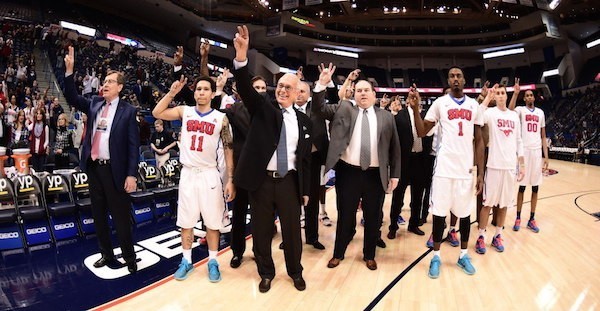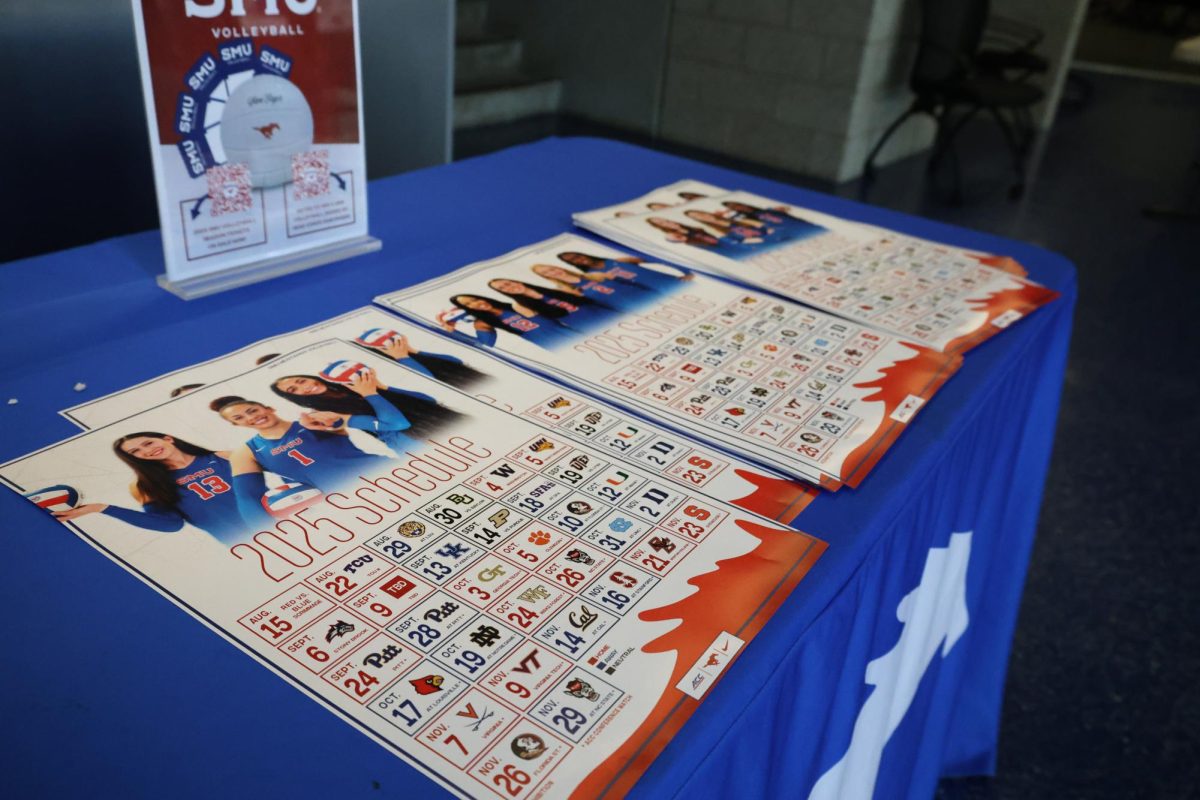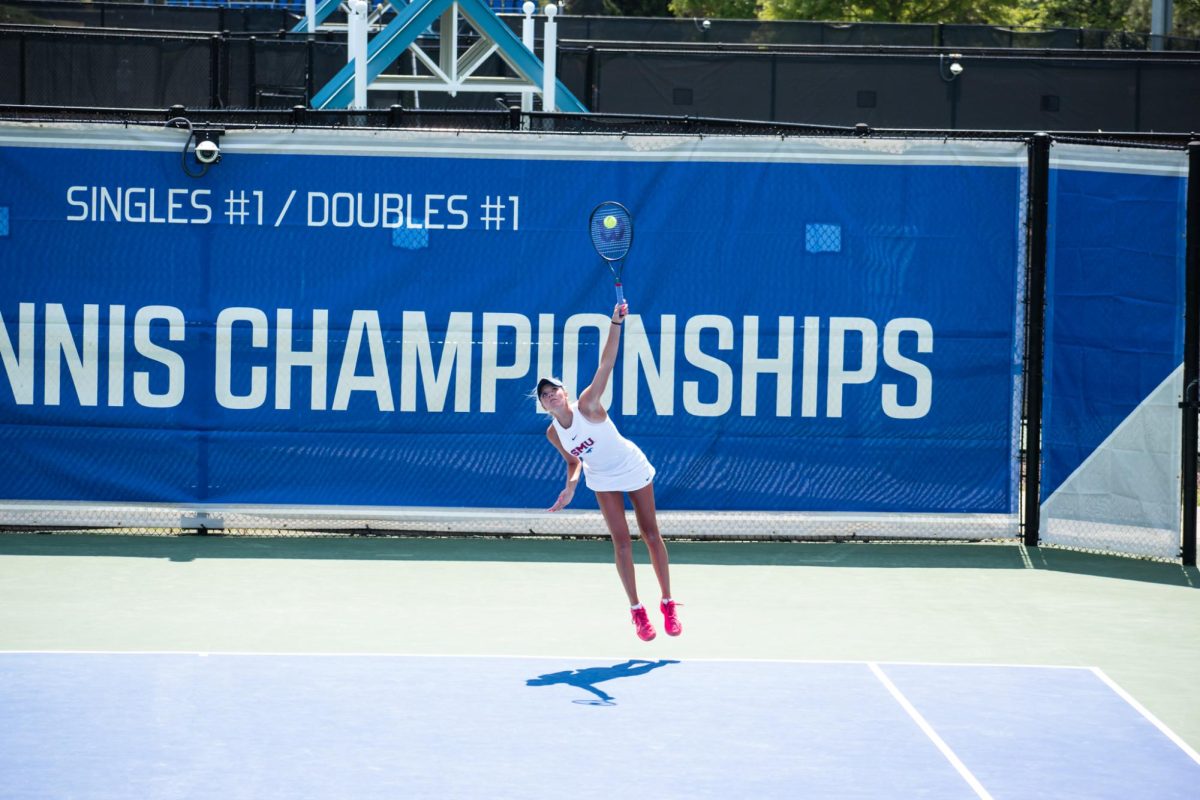SMU is better off without a four-star recruit.
It sounds egregious and stupid.
You’re trying to think of how it’s possible that SMU will benefit from the departure of center Ted Kapita, a top-50 recruit and a former Arkansas signee, from its recruiting class. How can a talented player at a position of need who would be a year older than most freshman be anything other than helpful for SMU?
You’re right. On the court, Kapita would help SMU. But that’s only part of what he brings.
Kapita is also a big academic risk. He already failed to qualify once, which prevented him from playing at Arkansas last year. And despite committing to SMU in February, he didn’t sign a letter of intent or a scholarship agreement in the spring signing period, because he had yet to qualify again.
Friday, he and SMU publicly parted ways. It was an expected move.
This isn’t an attack on Kapita for his academic struggles or an attempt to reprimand him for them. His academic struggles are fact. They’re part of what he brings as a recruit.
No team should be more wary of academic risk recruits than SMU. SMU needs to stay away from such players, no matter what they bring on the court.
As you remember, SMU got itself in trouble with the NCAA for illegally providing academic assistance an academic risk player before he even played a college game. That trouble forced a 25-5 team to sit out the postseason.
The same player who received the assistance later missed a semester’s worth of games due to academic issues. You know who that is. Markus Kennedy, a fan favorite, also missed games because he was academically ineligible and did not graduate as scheduled in May. Former SMU center Yanick Moreira didn’t graduate in 2015.
In addition to getting SMU sanctioned, these academic-related troubles have hurt SMU’s Academic Progress Rate (APR), the NCAA’s metric for holding specific teams accountable for keeping athletes eligible and ensuring they are making progress toward graduating.
The NCAA releases APR data every April. A team’s four-year APR score must be above 930, or it will receive an automatic postseason ban.
SMU men’s basketball’s four-year APR score is 939. The private school average this year was 970. Included in SMU’s four-year average is a 904 single-year score from 2013-14.
The 2015-16 score won’t be released until April 2017, so it isn’t included in the 939. That means Kennedy’s inability to graduate and Keith Frazier’s midseason transfer aren’t included in the 939. Both will hurt SMU’s APR.
See where we’re going here?
SMU’s current position makes it unable to afford taking any academic risks, regardless of what they bring on the court. Kapita fits that description. There’s nothing wrong with academic risk players getting a chance to play in college, but SMU can’t be a destination for them right now.
Kapita took a visit to North Carolina State over the weekend, according to multiple reports. If the Wolfpack find a way to get him on the team, good for them. If he doesn’t have any academic issues while he’s there, good for them. NC State has a four-year APR of 966 and didn’t just receive academic-related sanctions. It can afford the risk.
When Larry Brown first took over SMU, he could afford risks. SMU wasn’t in NCAA trouble then and was a moribund program that needed a talent infusion. SMU could afford Kennedy, who even after his academic troubles at SMU, still helped way more than he hurt.
SMU doesn’t have to sign Rhodes Scholars every year. But it should keep its current situation in mind and avoid risky players altogether. SMU is better off with no risk than with any risk. Even if Kapita qualifies, he still has to work to stay eligible each semester.
If SMU had taken the risk on Kapita and he qualified, you can’t help but think of the worst-case scenario for even a second: he has trouble staying eligible and helps tank APR, resulting in another postseason ban. Even that little thought is more egregious than saying SMU is better off without a four-star recruit.









